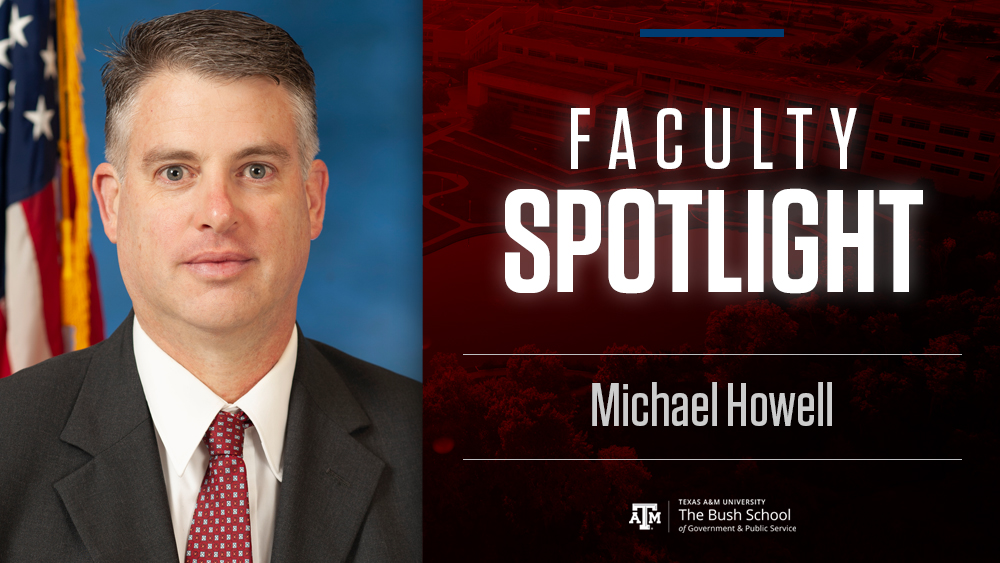
Michael W. Howell joined the faculty as an Associate Professor of the Practice in the Department of International Affairs in the fall of 2019. Howell graduated from Texas A&M University with a bachelor’s degree in business administration and earned a master’s degree in national security and strategic studies at the Naval War College, graduating with distinction.
Introduce yourself.
I’m Michael Howell. I’m a professor of the practice at the Bush School of Government and Public Service. I teach counterterrorism courses, and I’ve been here for about three years.
What research project/s do you currently have underway?
In addition to teaching my core classes, I have established a new class where I’m going to be taking students to Israel to tour actual terrorism sites. Additionally, I teach classes to help the students learn a little bit more about the intelligence community, such as a dignitary protection class and a surveillance class. Occasionally we’ll go and do some rappelling off of the building.
I like the dignitary protection class a lot. It gives the students a sense of what it’s like when they see some of the big names that come to the Bush School who have their own protection details. I’ll take about eight students a semester, and we’ll go over what it takes to do a protection detail. They’ll get to see firsthand what it’s like. I think it’s advantageous to them because it gets their interest piqued into the intelligence community jobs that are out there. That’s the main focus of it. It also lets them see some of the things they might do if they’re in certain intelligence community jobs.
What do you like most about working at the Bush School?
I love the students. I think that’s been the best thing so far. They’re all graduate students, so they want to be in the classes. They want to learn. They’re highly intelligent. I really enjoy that aspect of the job.
What is your favorite aspect of teaching?
I think my favorite aspect of teaching is the back and forth interaction with the students in class and outside of class.
Have you ever worked outside of academia, and if so, what did you do and how does that inform your teaching today?
I was with the FBI for twenty-three and a half years as a special agent. Before I was in the FBI, I worked in a job as an operations manager for a company. I learned a lot about businesses, business practices and things like that. I think that helped me in the FBI. It has also helped me a little bit in academia, too, to be better rounded and to teach the students more about what’s out there in the real world. Although I did do some teaching in the FBI as an adjunct professor at Quantico, our training academy, half of my career was focused on violent crime investigations—mostly bank robberies—and the other half was on counterterrorism. With that I did a lot of travel overseas and had a lot of good cases.
What career, research or teaching accomplishment are you most proud of?
I know I made a difference in my career with some of the cases I worked—taking terrorists off the battlefield was probably some of the biggest. I responded to some very big events in my career; the Columbine high school attack was one, the space shuttle crash was another. Those were two that stand out immediately in my mind. But the day-to-day, everyday work that I did with other special agents of my squad, that’s really what stands out to me.
At the Bush School, I’m most proud of teaching the students and helping them get jobs in the intelligence community. I also really like working with other professors here that were in the same line of work as me. I find that to be pretty fascinating.
What is your favorite class to teach and why?
My favorite class to teach is an interview and interrogations class called Collection Systems. I like talking to people, and that’s a good way to learn how to have a conversation with someone else, using psychology and other things that are backed by academic studies and experience. I teach the students some of the skills that they’ll need to do that out in the real world. We also use theater students and trained actors as our role players when we do mock scenarios.
